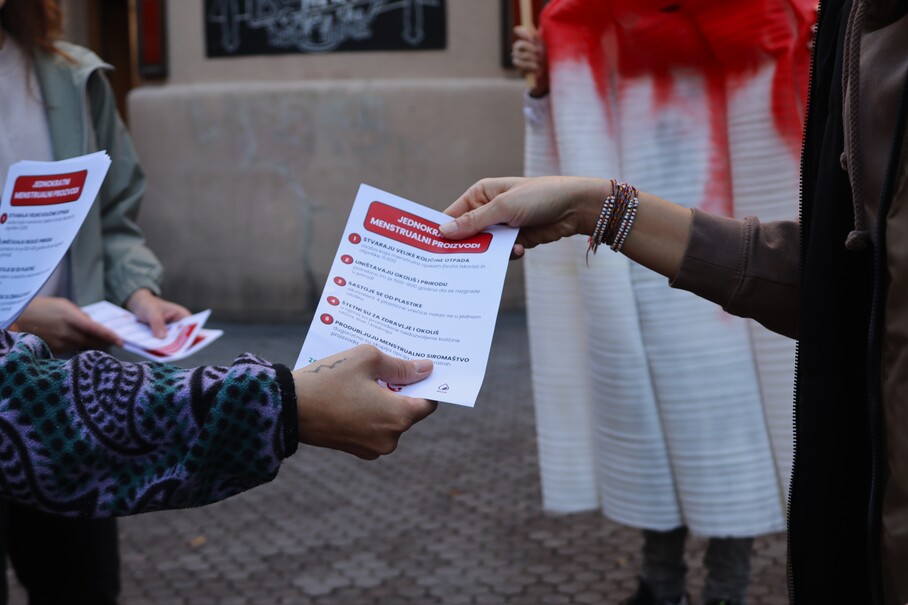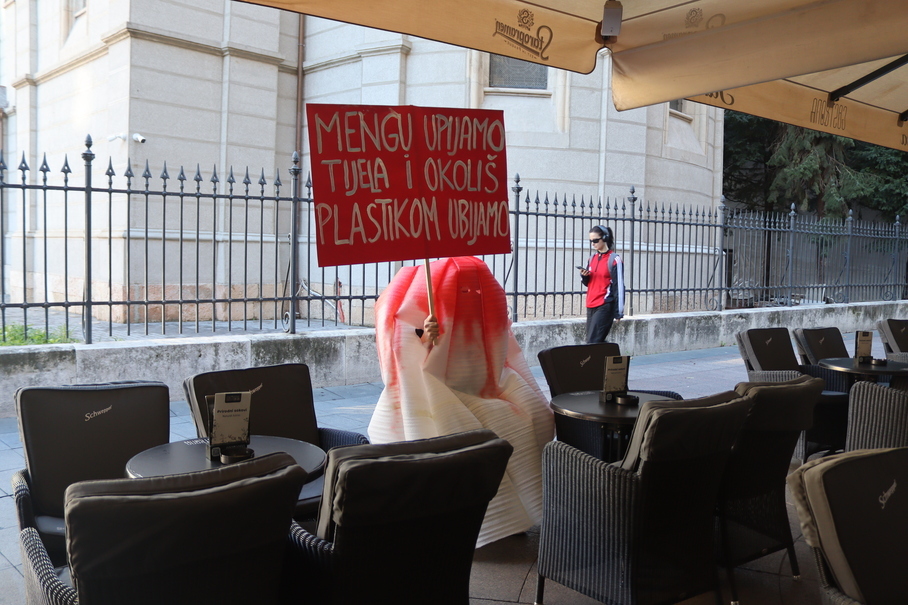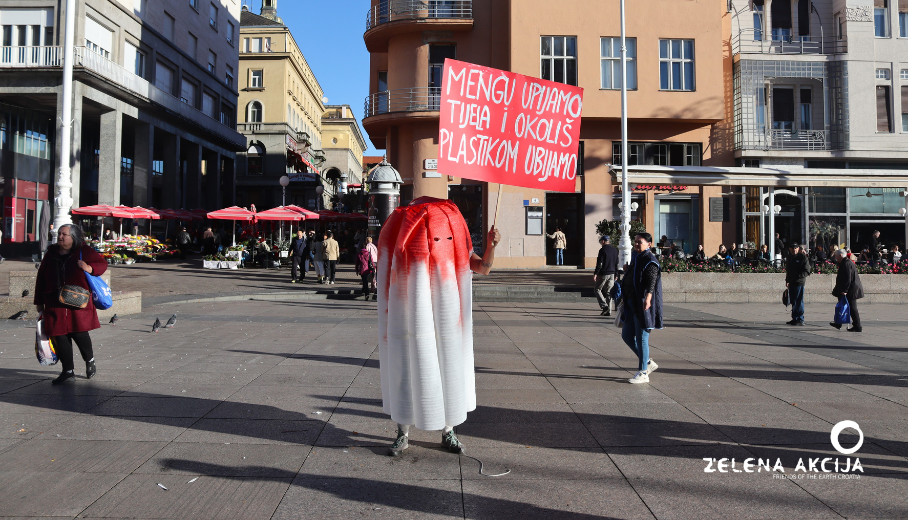Environmenstrual Week: We want healthier reusable alternatives!
The culture of disposable menstrual products is destroying health and the environment - activists of Zelena akcija/FoE Croatia said today in a performance on the main square in Zagreb on the occasion of the European Environmenstrual Week.
Dressed in a bloody tampon costume and holding the sign "We absorb menstruation, we kill bodies and the environment with plastic", they distributed leaflets and spoke to the public about the problems of disposable menstrual products. At the same time, they drew attention to solutions in the form of reusable alternatives such as cups, discs and washable pads and panties, which are safer for health, more cost-effective in the long run and better for the environment.

FoE Croatia points out that the culture of disposable menstrual waste is not the fault of people who menstruate, but rather of systemic negligence. Therefore, they advocate free products like Scotland or Catalonia, and especially for reusable products that not everyone can afford. They emphasise that it is also necessary to introduce education in schools, abolish taxes on these products and improve sanitary conditions in public institutions, in order to increase the use of healthier reusable alternatives.
Menstruation is a topic that is still extremely stigmatised in our society and is associated with many myths and taboos, as well as environmental problems. Namely, disposable menstrual products are used in enormous quantities. It is a shocking estimate that one person uses 10 to 11 thousand tons of disposable menstrual products such as tampons and pads during their life cycle.
These products then end up in landfills where they are disposed of in mixed waste because, although they contain a large amount of plastic, they are not recyclable. It is estimated that four tons of disposable pads and tampons are thrown away in Croatia every year. In addition to taking centuries to decompose, toxins and chemicals are released into the soil, water and environment during this process.
A recent study found elevated and unacceptable levels of cadmium, lead and mercury in pads, making them hazardous to health. Although better alternatives are available, such as reusable products and products free of toxins and plastic, their use is still limited by various barriers such as menstrual poverty and stigma.



